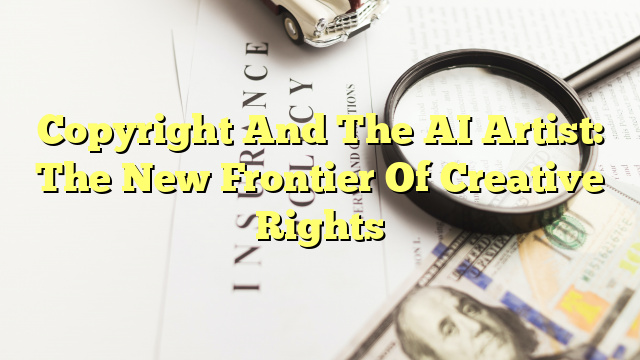Table of Contents
Introduction
With the rise of artificial intelligence (AI), the realm of creativity has expanded into new territories. AI-generated art, created by algorithms and machine learning, has become a topic of fascination and debate. However, this new form of artistic expression raises important questions about copyright and intellectual property rights.
Understanding AI-Generated Art
AI-generated art refers to artworks that are created or significantly influenced by artificial intelligence systems. These systems use algorithms and machine learning to analyze and replicate patterns, styles, and techniques found in existing artworks. The result is a unique piece of art that is generated by a machine rather than a human artist.
Copyright on AI-Generated Art
The question of whether AI-generated art can be copyrighted is a complex one. In many countries, copyright law grants protection to original works of authorship that are fixed in a tangible medium. While AI-generated art may meet these criteria, the lack of human authorship raises challenges in determining who should be considered the creator and owner of the artwork.
Copyright Issues with AI Art
One of the main copyright issues with AI art is the question of authorship. Traditional copyright laws attribute authorship to human creators, but AI-generated art blurs the lines of authorship. Should the programmer who created the AI system be considered the author? Or should the AI system itself be recognized as the creator? This ambiguity complicates the enforcement of copyright and the protection of creative rights.
AI Art and Ineligibility for Copyright
Some argue that AI-generated art should be ineligible for copyright protection because it lacks the human creativity and intentionality that traditional artworks possess. They argue that copyright should be reserved for works that are the result of human intellectual effort. However, others contend that AI systems can exhibit creativity and should be eligible for copyright protection.
Applicability of Copyright Laws to AI
The applicability of copyright laws to AI-generated art is a topic of ongoing legal and philosophical debate. As AI continues to advance and create more sophisticated artworks, it is crucial to reassess and adapt copyright laws to address the unique challenges posed by AI art. This includes redefining the concept of authorship and determining the rights and responsibilities of human creators and AI systems.
Conclusion
The emergence of AI-generated art presents a new frontier of creative rights and copyright issues. While the legal landscape surrounding AI art is still evolving, it is essential for lawmakers, artists, and society as a whole to engage in thoughtful discussions and establish frameworks that protect the rights of both human creators and AI systems.
Article Summary
AI-generated art raises important questions about copyright and intellectual property rights. The lack of human authorship in AI art complicates the determination of copyright ownership. Some argue that AI art should be ineligible for copyright protection due to its lack of human creativity. However, others believe that AI systems can exhibit creativity and should be eligible for copyright protection. The applicability of copyright laws to AI art is an ongoing legal and philosophical debate that requires careful consideration and adaptation of existing laws.
Questions
- Is there a copyright on AI-generated art?
<li

